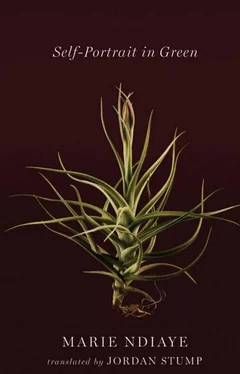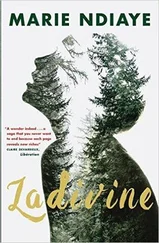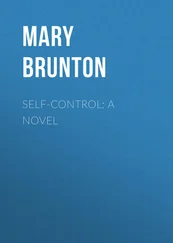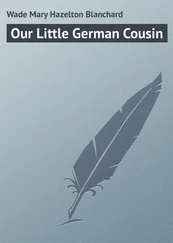“But what does she know about that?”
And Jenny answers that Ivan’s wife describes her own life with Ivan, which is a fairly reliable way, thinks Jenny, of showing her the life Jenny and Ivan would have had together. That’s what goes on every morning: the one speaks and the other listens, and as the one talks the other feels herself growing small, transparent, and empty, more convinced than ever of her insipidity. In parallel, her regrets about Ivan grow ever more wrenching. I ask, surprised:
“But what’s in it for her? Why should she do that?”
And Jenny answers, surprised at my surprise:
“To console me.”
I ask:
“Console you for what?”
“For the tragic mistake I made, not choosing Ivan when I still could,” answers Jenny in her hard voice, intended to repel any reaction of pity.
Nevertheless, it seems to me that Jenny comes away from these conversations not consoled but crushed by despair and self-loathing. In a murmur, she tells me:
“We’ll never be young again, never.”
I want to object, I want to shoot back: Well, I’m young. I’m only in my thirties, after all. But isn’t Jenny right? Oh yes, I tell myself, Jenny’s right, Jenny’s right. What she’s thinking of — the belief in the infinity of possibilities, the illusion that you can forever start over again, that every mark made on you lasts a little while then ends up disappearing — all that we no longer have. I ask Jenny:
“We no longer have that, but isn’t it better this way? Isn’t it a thing to be grateful for, every day?”
* * *
April 11, 2001 — Around eleven this morning, Jenny went to Ivan’s wife’s house.
The air is mild and perfumed and full of hope. Jenny’s blond-white ponytail undulates against her back. Jenny walks with her head high, and she promises herself, although the promise brings a lump to her throat, that this is her very last visit. The time has come to put an end to these lamentations, Jenny tells herself, and to this homesickness, home being the life she never had, with Ivan. That’s how she sees this: a land whose soil she trod for a few happy steps, and which she then thoughtlessly left behind, and now it’s been wiped off the map. She can never come back. That’s the form of her sorrow, of the thing weighing on her heart ever since she saw Ivan again.
The house seems to be empty. Jenny knocks, waits and waits, then goes in all the same. The kitchen and living room sit frozen in an atypical tidiness. She hesitates, sits down. She takes the wife’s pack of cigarettes from the little table. She hesitates again, then pulls one out and lights it somewhat clumsily with the lighter she knows so well, which she’s found lying on the table like a thing not so much put down as put away. She crosses her legs and smokes. She’s aware of her flushed face, her shame. She imagines her parents, eyeing her sternly, reproaching her for being a woman and smoking, for being worthless and smoking.
And then she suddenly stands up and bolts down to the basement, still holding the cigarette. Her shoes clap sharply against the cement steps. In her haste, she almost trips, almost tumbles headlong down the stairway.
She embraces Ivan’s wife’s thighs and hips. The wife is wearing green corduroy pants and a blouse of green satin. Her feet are bare, and Jenny notes their soles, gray with dust.
What’s left of the cigarette is still clasped between Jenny’s lips. She’d like to wash off those feet, already cold, rub them, implore them. Straining to hoist up the body so she can loosen the knot on the rope, she spits out her cigarette butt, then presses her face into Ivan’s wife’s bulging belly and begins to sob in horror and dismay, now and then shouting out toward the basement walls, which bounce her cry back to her in a feeble echo. The house is deserted, she can call out all she likes — who will hear her?
* * *
Two years go by with no news from Jenny, each of us keeping our distance from the other, her, ashamed of confiding in me when it’s not in her nature, me, remorseful for pushing her to tell me what she’d rather have told no one.
In a pedestrian street of a small city, one crowded and tiresomely bustling Saturday in the year 2003, I run into Jenny, who, ever the same, pushes back a few strands of hair that have come out of her bun before giving me a kiss. In our joy at seeing each other again, our cheekbones bump painfully. I have on my chest a baby Jenny’s never met, of whose very birth she knew nothing. She looks at the baby with delight, and the change makes me realize how downcast and defeated her whole manner had been just a moment before. She points toward the back of the man who was with her, now silently plodding away, hands in his pockets, shoulders slumped. His head is bald, ringed with a crown of gray hairs.
“That’s my husband Ivan,” says Jenny, with a faint grimace.
And then a sadness, a bitterness takes shape between us.
Once she’s divorced Ivan, once she has, for the second time, moved back in with her parents, who, anesthetized by so many failures, have finally sunk into a sort of merciful torpor, Jenny summons herself up from my memory and rather grandly invites me to come see them. I find her irritable with the old couple, haughty and curt, as if for some reason they owed her. Gone is the sweetness in her features, gone her appealing look of dismay, replaced by a mask of sarcasm and scorn. The parents serve us the meal they’ve prepared, Jenny finds fault and complains, and in the end I leave the table to join the two old people in the kitchen, where they’re eating their dinner. I sit down beside them to finish my plate. They smile beatifically, unable to understand that they’re being mistreated. They’ve changed in a most surprising way. I know that in another time they inflicted a brutal upbringing on Jenny. After coffee, I want to leave right away, but Jenny recovers some of her warmth and her smiles, and asks me to stay. But when I suggest a walk around the village, her entire face turns cold and hard, and she refuses without the tiniest trace of friendship in her voice.
“She’s afraid of that woman,” the mother murmurs to me in an aside.
“That woman?”
“The one who hanged herself.”
Her voice is almost inaudible, a peep. She’s terrified.
Jenny has taken refuge in her old-fashioned little room, a girl’s room, crouching on her bed, her chin on her knees. I then picture us, four people feeling only the most tangled sentiments for each other, isolated in this gray house in the outer reaches of a gloomy province, and I have only one desire: to run away as fast as I can and desert these three people, whom I promise myself I will never see again.
“I met Ivan’s wife,” says Jenny — neglecting to mention that she too was, for one short year, Ivan’s wife.
A scowl flashes across my face. Jenny nods vigorously. In a monotone, speaking fast to stave off interruptions, she tells me how she and Ivan, early in their marriage, as they wandered the aisles of a department store, almost collided with a woman draped in a very elegant green coat, with genuine fur collar and cuffs, dyed green. It was her, Ivan’s wife, who’d hanged herself to death in her basement, later to be found by Jenny. So it really was her? I smile my disapproval and say nothing.
“It’s hard to believe,” says Jenny, “but I only mention it because Ivan recognized her himself. Ivan’s a down-to-earth man.”
And so Ivan, having recognized her, called out her name. And the woman, coolly, as was her way, spoke exactly this sentence:
“So, you two, how’s it going?”
Jenny asks me: would a stranger they’d mistaken for Ivan’s wife have spoken to them like that?
No, a stranger they’d confused with Ivan’s wife would not have spoken to them like that, certainly not. This woman then went on:
Читать дальше












